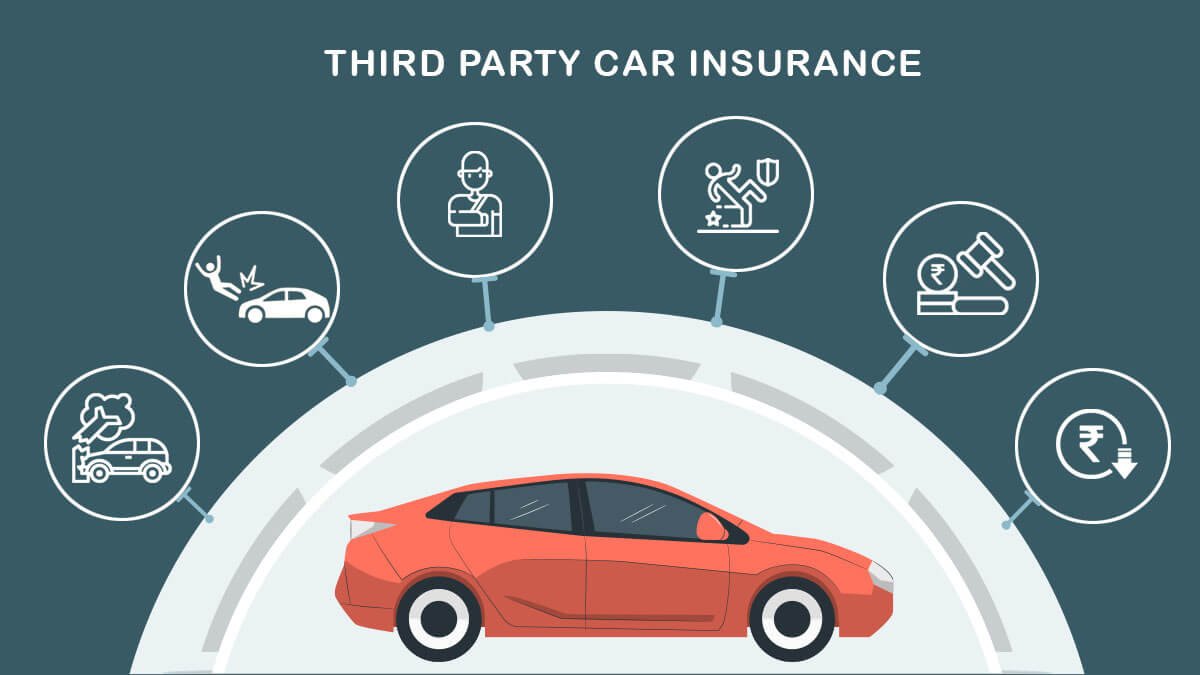Comprehensive car insurance is a type of insurance that covers your car from damage and losses not caused by a collision. This can include things like theft, natural disasters, and accidents involving animals. It helps to protect you financially if your car is damaged or stolen. Comprehensive insurance is a more complete coverage option as it covers a wider range of incidents, while third party insurance is a more basic option that only covers liability for damage to others.
What are the benefits of comprehensive car insurance?
- Protection for your own car: Comprehensive insurance covers damage to your own car in case of accidents, theft, fire, and other covered incidents.
- Protection for other people’s property: Comprehensive insurance also covers damage to other people’s property, such as their car, in case of an accident that was your fault.
- Financial peace of mind: If your car is damaged or stolen, comprehensive insurance helps to protect you financially.
- Wide coverage: Comprehensive insurance covers a wide range of incidents, including natural disasters and accidents involving animals.
- Choice of repairer: Comprehensive insurance often allows you to choose your own repairer, so you can be sure that your car is fixed to your satisfaction.
- No out-of-pocket expenses: Depending on your policy, you may not need to pay anything out of pocket if your car is repaired or replaced, as the insurance company will cover the costs.
Lets Understand of Comprehensive car insurance through Example
Let’s say you have a comprehensive car insurance policy and you hit a deer while driving. Your car is damaged and needs to be repaired. With comprehensive insurance, you would file a claim with your insurance company and they would pay for the repairs to your car. You may have a deductible, which is the amount you have to pay out of pocket before your insurance kicks in, but the rest of the cost of repairs would be covered by your insurance policy.
If someone else’s car was damaged in the accident, your comprehensive insurance would also cover their repairs, as long as the accident was your fault. This can give you peace of mind knowing that you won’t have to pay for someone else’s damages out of pocket.
In contrast, if you only had third party insurance, you would only be covered for the damage to the other person’s car and not your own.
This example shows how comprehensive insurance can provide a wider range of protection and more complete coverage for your car.
What Things Comprehensive Insurance doesn’t Cover?
Comprehensive insurance doesn’t cover everything, here are a few common exclusions:
- Normal wear and tear: Comprehensive insurance doesn’t cover normal wear and tear on your car, such as tire wear or a worn out battery.
- Mechanical failure: Comprehensive insurance doesn’t cover mechanical failure or breakdown of your car’s components, such as a blown engine or transmission problems.
- Intentional acts: Comprehensive insurance won’t cover damage caused by intentional acts, such as vandalism or theft by someone you know.
- Driving under the influence: Comprehensive insurance won’t cover damages caused by driving under the influence of drugs or alcohol.
- Racing or stunt driving: Comprehensive insurance won’t cover damages caused while participating in racing or stunt driving.
- Flooding: Comprehensive insurance may not cover damages caused by flooding, unless you have added specific coverage for this type of incident.
It’s important to understand what is and isn’t covered by your comprehensive insurance policy so you know what type of protection you have. Be sure to read the policy carefully and ask your insurance agent any questions you may have.
What are add-ons while purchasing Comprehensive Car Insurance?
- No Claim Bonus protection: This add-on protects your No Claim Bonus even if you make a claim.
- Zero Depreciation cover: This add-on provides full coverage for your car, including depreciation, in case of damage or loss.
- Engine protection cover: This add-on covers the cost of repairing or replacing the engine of your car in case of damage.
- Personal Accident cover: This add-on provides personal accident coverage for the policyholder in case of injury or death due to a car accident.
- Key replacement cover: This add-on covers the cost of replacing lost or stolen keys for your car.
- Roadside Assistance: This add-on provides 24-hour roadside assistance in case of a breakdown, flat tire, or other car-related issues.
- Return to Invoice: This add-on provides coverage for the difference between the insured value of your car and the original invoice price in case of total loss.
You can choose to add any of these add-ons to your comprehensive car insurance policy, depending on your specific needs and preferences. Keep in mind that adding add-ons will likely increase your insurance premium.
What are the Factors to calculate Premium for Comprehensive Car Insurance ?
- Car make, model, and year: Premiums can vary depending on the type of car you drive and its age.
- Insured Declared Value (IDV): IDV is the current market value of your car, and the higher the IDV, the higher your premium will be.
- Age of the policyholder: Younger drivers may pay a higher premium than older drivers.
- Location: Premiums can be higher in areas with higher crime rates or more traffic.
- Driving history: A good driving record can lower your premium, while a history of accidents or traffic violations can raise your premium.
- Add-ons: Adding optional coverage, such as No Claim Bonus protection or Zero Depreciation cover, can increase your premium.
- Policy term: The length of the policy term will also affect the premium, with longer terms often resulting in lower premiums.
Key Take Away From Comprehensive Car Insurance
- Comprehensive car insurance provides a wider range of protection and complete coverage for your car, including damages caused by theft, fire, natural disasters, and collisions.
- Third party insurance only covers damages to someone else’s car, not your own.
- Comprehensive insurance has several benefits, such as protection for your No Claim Bonus and coverage for personal accident.
- Comprehensive insurance doesn’t cover normal wear and tear, mechanical failure, intentional acts, driving under the influence, and flooding, among other things.
- Add-ons, such as No Claim Bonus protection and Zero Depreciation cover, can be added to your comprehensive car insurance policy for additional coverage.
- The premium for comprehensive car insurance is calculated based on factors such as the car’s make and model, the insured declared value, the age of the policyholder, location, driving history, add-ons, and policy term.
- It’s important to understand what is and isn’t covered by your comprehensive insurance policy, and to compare quotes from multiple insurance providers to ensure you’re getting the best coverage for the best price.
Frequently Asked Questions on Comprehensive Car Insurance:
Comprehensive car insurance is a type of auto insurance that provides complete coverage for damages to your car, including theft, fire, natural disasters, and collisions. It also covers damages to someone else’s car in case of an accident.
Third-party insurance only covers damages to someone else’s car, not your own. Comprehensive car insurance provides complete coverage for your car as well as for damages to someone else’s car in case of an accident.
Comprehensive car insurance provides protection for your No Claim Bonus, personal accident coverage, and complete coverage for your car, including damages caused by theft, fire, natural disasters, and collisions.
Comprehensive car insurance does not cover normal wear and tear, mechanical failure, intentional acts, driving under the influence, and flooding, among other things.
Yes, you can add optional coverage, such as No Claim Bonus protection and Zero Depreciation cover, to your comprehensive car insurance policy.
The premium for comprehensive car insurance is calculated based on factors such as the car’s make and model, the insured declared value, the age of the policyholder, location, driving history, add-ons, and policy term.
Yes, it is always a good idea to compare quotes from multiple insurance providers to ensure you’re getting the best coverage for the best price.














